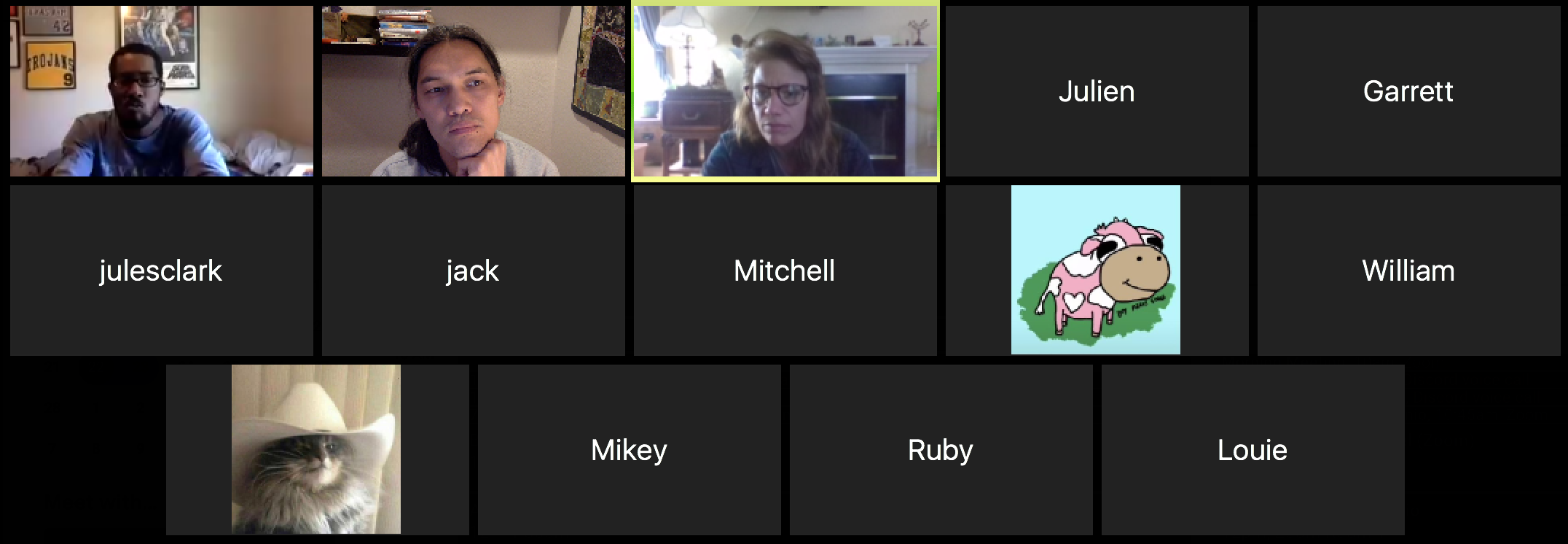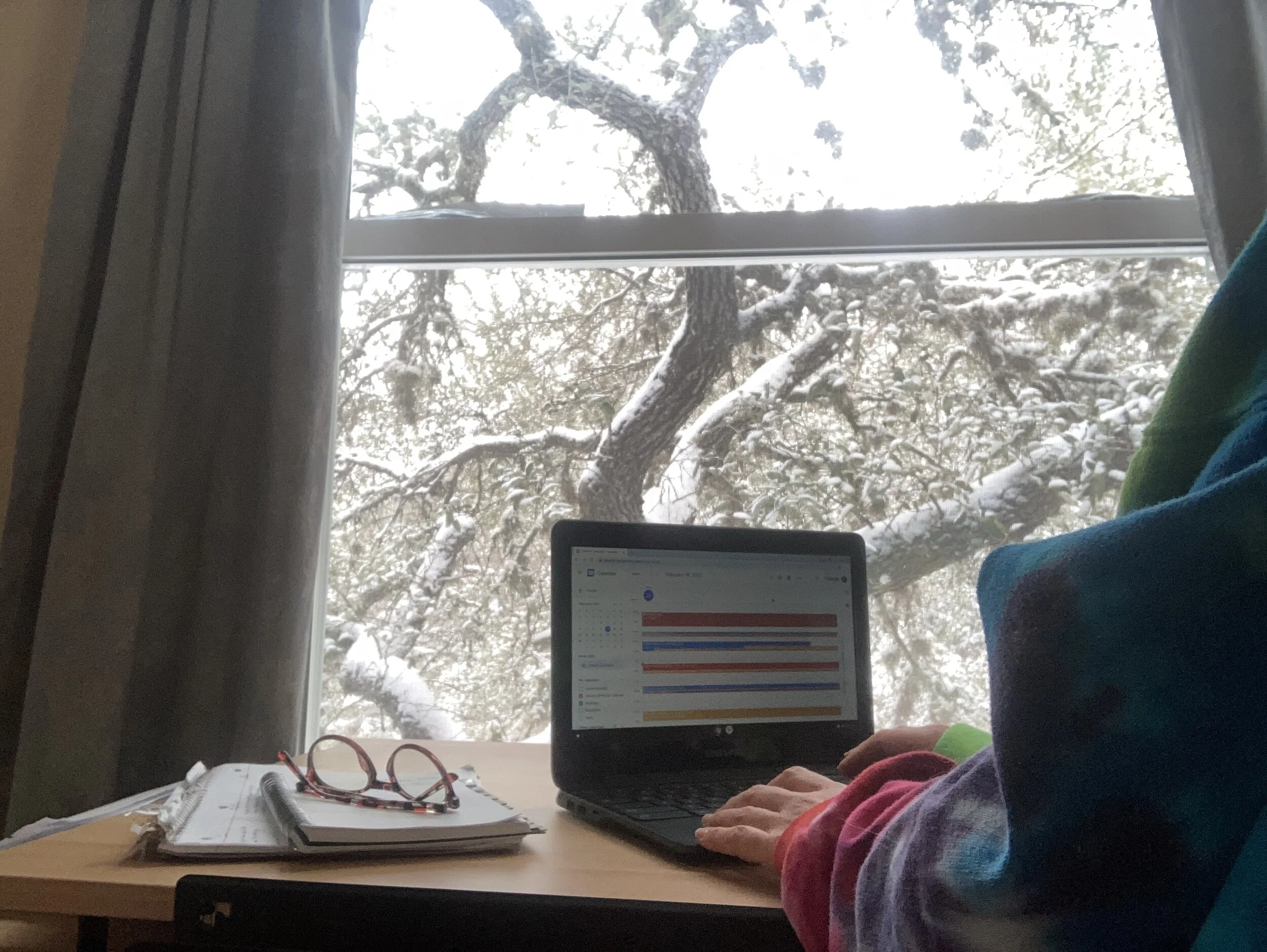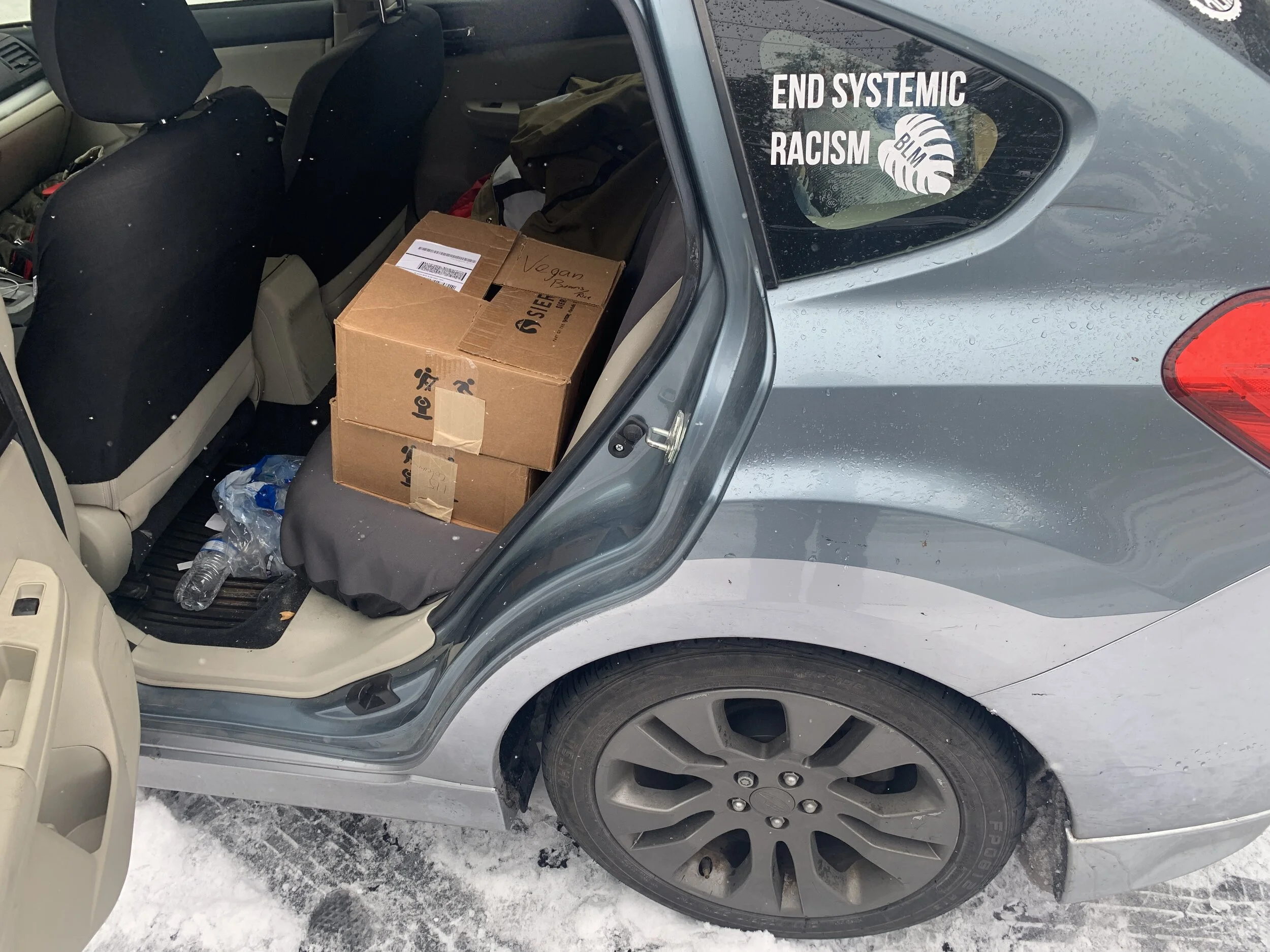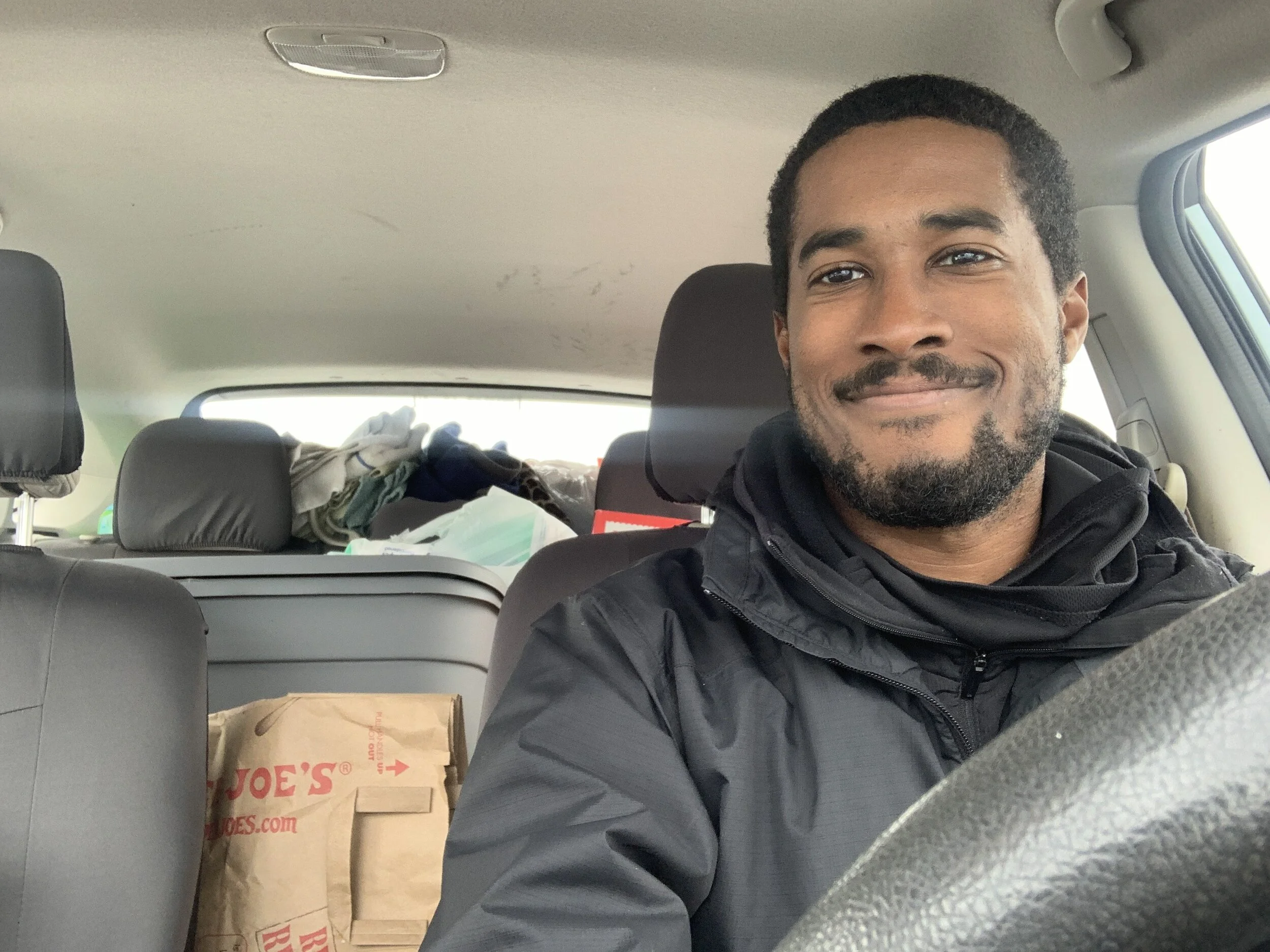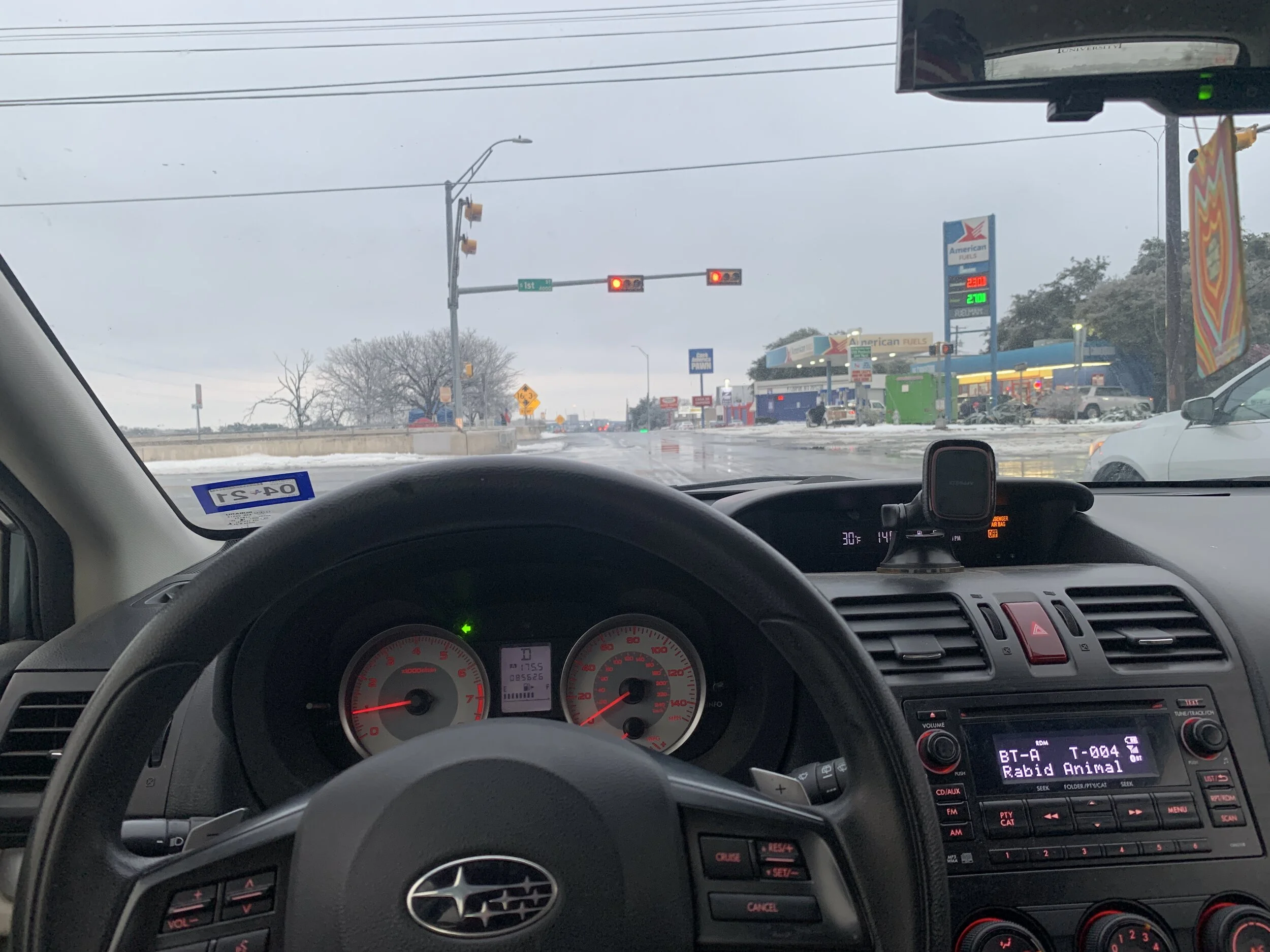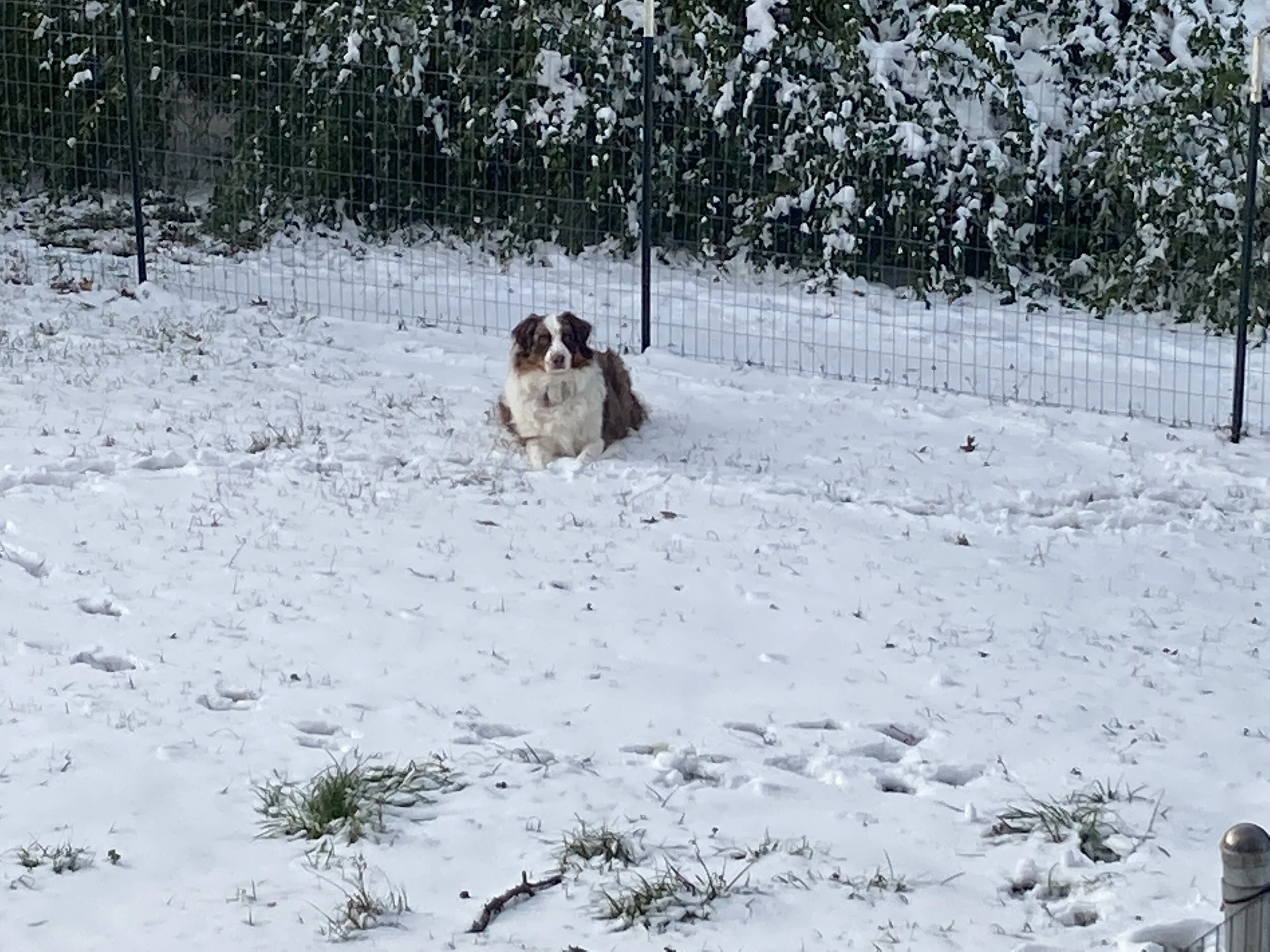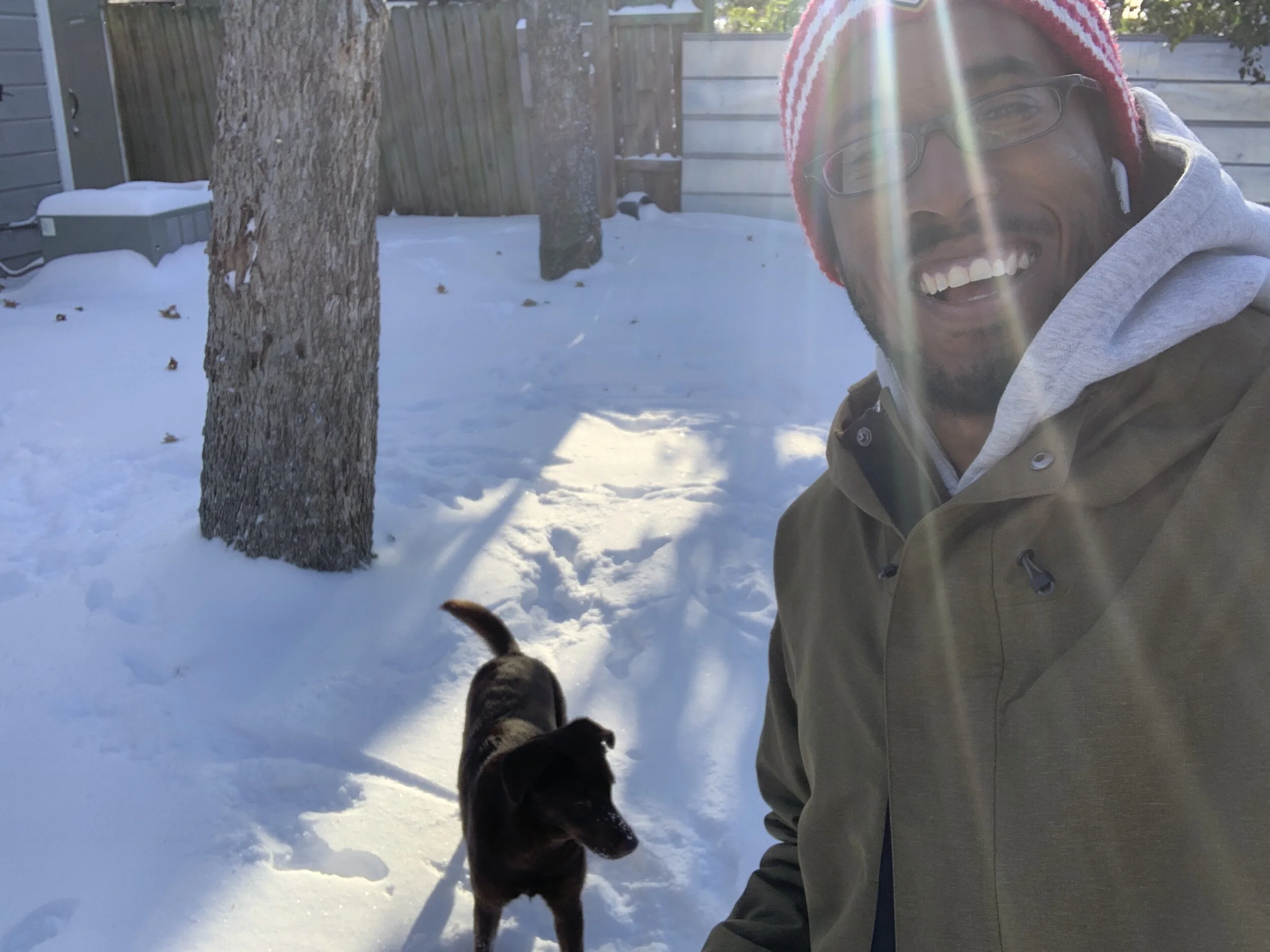This week started out fabulously on Sunday as the weather broke 70 degrees. Some of Austin was still reeling from the deep freeze and subsequent black outs and burst pipes that came with it, but most of Austin soaked up the sun and moved on. Except for those who were seriously harmed by the cold or who suffered water damage, there was little to recover from as there would be if the disaster was caused by a tornado or flooding. Without visual evidence of the harm suffered all around us I feel that some of the lessons will quickly be lost, particularly the ways in which government entities and NGOs were not there for the people, but how neighbors engaging in mutual aid were. Nonetheless, I was really excited for a week (hopefully) free of disaster.
Unfortunately for the Learners and Facilitators, we were still going to be remote on Monday and Tuesday, our last two days of cycle six. We were remote for all of cycle five (January) because of the latest Covid-19 wave, and for the first week and a half of cycle six. Then we were remote because of inclement weather and the deep freeze for the next week and a half. The reason we are remote for the last two days of the cycle is because they are planned remote days as per our contingency planning document that allow us to have at least nine days between cycles so that Learners can observe for symptoms before coming back together in new cells to limit the potential spread if someone in our community were to become infected. And even though we had not been in-person all cycle (all calendar year), if we came together on Monday and Tuesday it would not allow us to have that necessary separation from one another. I asked Learners and their families to make firm commitments to be in-person or remote by Tuesday so that we could set the cells for the next cycle during our Professional Development Day on Wednesday.
That morning I also read a wonderful article, “Why Did We Ever Send Sick Kids to School?” It discusses the impact of rewards around attendance and the punitive ways that schools have enforced compulsory attendance that directly harm both children and families, but also the ways that it harms everyone in terms of public health. They also pivoted to talking about how this focus on attendance at school also distorts “American culture, which places a high value on productivity, pushing yourself, and “soldiering through” illness in nearly every line of work." It was an excellent article. But there was one glaring error in the article. It said, "schools place a premium on attendance because it is associated with academic performance." That is not accurate. Schools place a premium on attendance because it is associated with seat time revenue.
Morning meeting
Back to Abrome. Being remote we came together for our morning meeting at 10:00 a.m., as usual. Facilitator Lauren was facilitating. For game shifting she said that we would go in alphabetical order by first name. While it seemed like a fun way to pass off from one person to the next, it worked out terribly as for whatever reason most Learners were not eager to figure out who they would speak after, leading to very long pauses in the meeting. Because we had a strong turnout for the meeting this really stretched out the length of the meeting leading to it going over the 15-minute target for the facilitator of the meeting.
Facilitator Lauren said, “springtime is not until March 20th, and even then it can still be very cold. After experiencing the Texas freeze, share one or two ways that you will prepare to be comfortable during a cold Abrome day [since we will be meeting outdoors].” Most of the answers were similar: bring warm drinks; buy more leggings, make sure I always have water and food, and an extra pair of socks; no cotton [cotton kills], dress in layers, wear a hat; wear more clothes; just wear warm clothes and bring a blanket; wear gloves; “wear shorts, I always do” [this is not recommended], wear huge black or tan snow / hiking pants; arson [bad joke], bring a jacket; wear a jacket and gloves if really cold; wear a jacket; wear warm clothes; bring a jacket. We were hoping to get a broader diversity of responses, but at least everyone seems to understand that how we dress is just as important as how bad the weather is.
After the morning meeting I had two back-to-back one-to-one check-ins scheduled as the lack of internet the prior week forced me to cancel many of them. I had a nice long conversation for the first check-in with a Learner that has been remote now for four cycles. I talked about us going back in-person and how the next cycle was our only two-week cycle of the year and how much I hoped that he would consider joining us. After that he brought up the issue of body cameras for law enforcement, and then we discussed whether or not it was a net positive or negative for police to have body cameras. He spoke positively about accountability and being able to better understand situations, and I spoke about my personal experience of having police and prosecutors refuse to release footage when it shows police doing harm, and the failure of the police and prosecutors to use those videos to punish or prosecute the police, but how they will eagerly use the video against victims of police brutality. It was a lively discussion but we both made room for the other person to share their viewpoints. Because the other Learner did not show up for his one-to-one I was able to extend out the first check-in for an extra 15 minutes.
At 10:45 a.m. we got back into our daily 7-minute workout routine after only being able to do it twice the prior week. All but one showed up from the usual crew, and we all really felt the workout while at the same time being very grateful for having the opportunity to do it again. We gave each other high fives and then departed.
Next up was Facilitator Ariel’s breakfast chat that only Facilitator Lauren showed up for. They enjoyed being able to spend time chatting with each other and I’m really enjoying seeing their personal friendship flourish at Abrome. I have been part of too many communities (e.g., military, investment banking, activist groups) where there is animosity and dislike between people and that has such a caustic, corrosive effect on the culture of a community. Meanwhile, I was on a call with a Learner at their request. During the call they asked for some clarification on their responsibility to others and articulated some clear boundaries they wanted honored. I was surprised to hear what they had to say, but so grateful for them having the trust in me and the community to be able to share their concerns. I hope that we can continue to build trust so that Learners always feel able to self-advocate and set boundaries.
With a rare window of availability in time, and with the roads free of ice, I was able to make a long overdue trip to the bank in the middle of the day to deposit some tuition checks I had been holding onto since the beginning of the month. Meanwhile, Facilitator Lauren hosted her art and fart offering which we really did anticipate being popular among a subset of Learners. It never really took off. But Facilitator Ariel did drop in. Then I had my free write offering which no one showed up for but that I used for some dedicated writing time. We have been hosting these offerings to hold space for Learners during this unfortunate remote period during this pandacademic year, so we get the value of it, but it is still disappointing when Learners do not take up the offerings. But we are a Self-Directed Education community and we value their autonomy and consent, so we do not demand it, either. Meanwhile, we are getting good turnout in morning and afternoon meetings, and most check-ins, so clearly they are valuing connection. But it’s pretty overwhelming from our perspective—we cannot wait to be back in-person again.
Book reading offering
Former Facilitator Jennifer sent me a message two weeks ago encouraging me to read How to Talk to an Autistic Kid by Daniel Stefanski. I did, and then I decided to host an offering where I would read it to anyone who showed up. I originally scheduled it for last week but rescheduled it twice thanks to the freeze. At 2:30 p.m., I read the book to the two Facilitators and one young Learner who showed up for the offering. A couple of times during the reading we stopped to discuss an experience that was shared by Stefanski, an actually autistic kid. We talked about the ways that some of his experiences related to our experiences, and we talked about things we have observed, particularly in schoolish settings in the past.
Facilitator Ariel started the afternoon roundup at 3:30 p.m. with a review of the Community Awareness Board, and then opened up the meeting to announcements. Next he asked everyone to close their eyes and think of a happy memory. Then he asked what color was most prominent, and the associated memory if they wanted to share it. Interestingly, there were a lot of earthy responses.
browns: running in the mud, climbing trees, and the color of my mom’s arms
orange/brown: a loved one gifted her a book that she wanted for a long time and it had a hard orange/brown cover with ridged pages
cardinal red: when I was deployed to Iraq I got my broken admissions binder to Stanford weeks late in a very beat up package, and inside the cardinal red binder was a note from the dean of admissions saying I got accepted to the MBA program, meaning that I had a plan for after the military which I could not leave quickly enough
blue: the color of the swimming pool I swam in on my 11th birthday
yellowish color of drywall: the color of the wall from a time I was playing Minecraft with a friend on his mom’s computer in his mom’s room
blue and green: being outside with family
green: an animation color
black and white: because of the colors of the bird Carolina chickadee
green: frog
green: I like being in the woods, and the time I went canoeing in an old metal canoe on a green watered lake
After the afternoon roundup all the Learners bolted and the Facilitators recapped and discussed the events of the day in our daily after action review meeting. We also talked about the professional development that we had planned for Wednesday, and agreed on a public park that we could come together to hold it at, masked and distanced, of course. It was a long day and we were ready to log off for the day, so we said goodbye. I then spent my evening taking Cuddle Buddies Ivan and Ingrid on a very long walk, delivering a workbook on decolonizing non-violent communication to a local activist, and reading.


